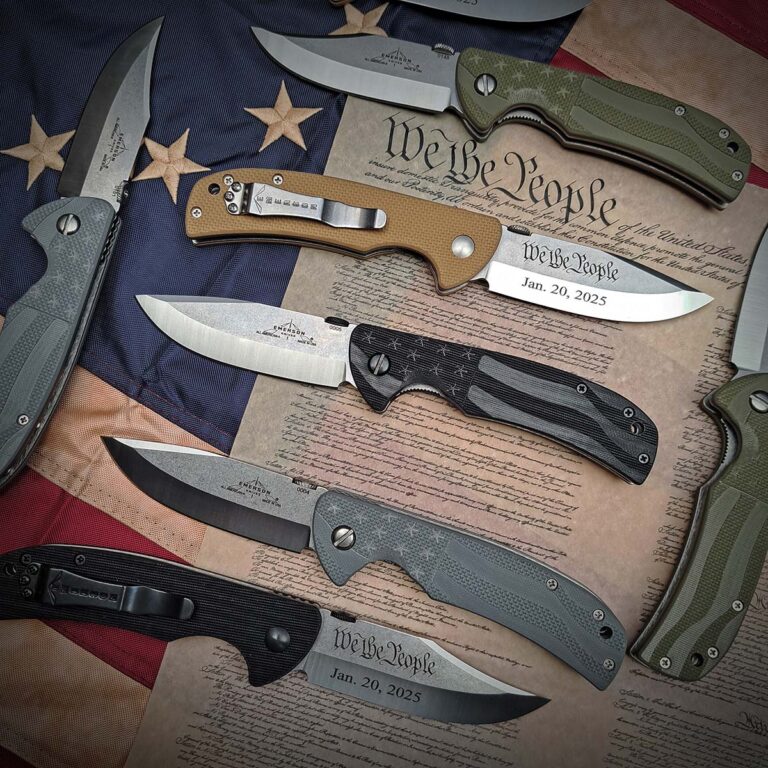
Leading domestic factory companies outline barriers to producing knives in America.
The slogan “Made in the USA” carries a specific meaning across the globe. American knife manufacturers tout that aspect of their operations with justifiable pride. Still, they face challenges in the arena of worldwide competition, constantly seeking methods and management that offer the best opportunities for success.
In addition to the inherent competition related to the actual quality of their finished products—the attributes that compel the buyer to choose their knives over that of a competitor—American cutlery manufacturers often find themselves up against a foreign-government-subsidized or bankrolled competitor. Trade barriers may prevent their products from reaching a broader customer base, and the shifting costs of labor, materials and production demand attention.
Export Hurdles
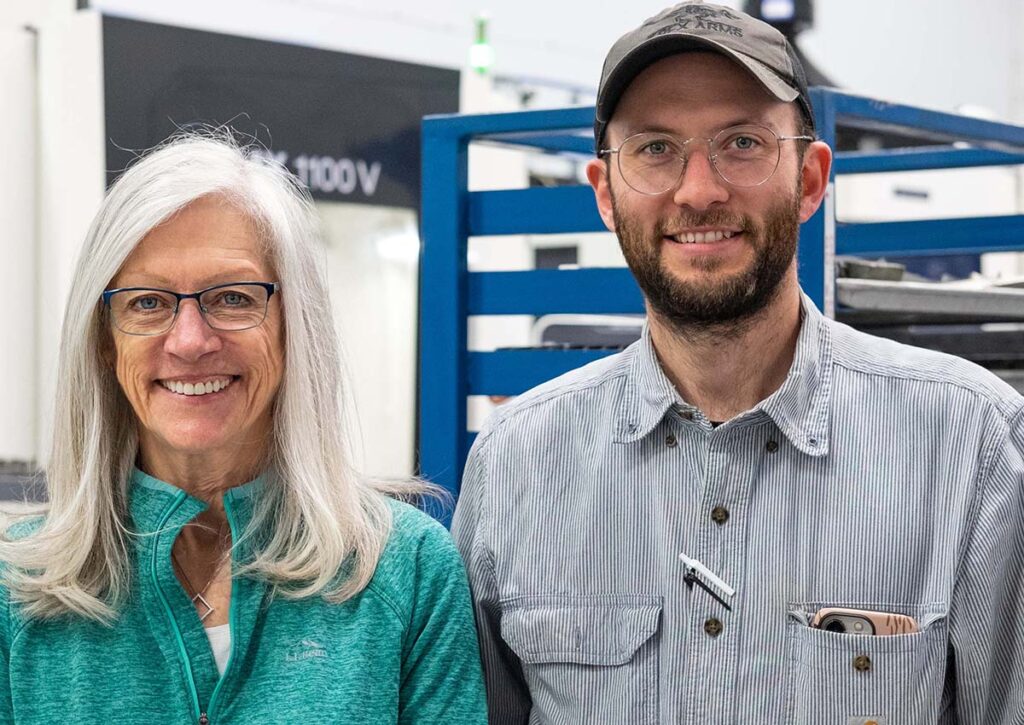
“One major challenge is the cost of distributing products overseas, particularly to the European Union,” related Curtis Iovito of North Carolina-based Spartan Blades. “The combined impact of Value Added Tax [VAT] and customs duty can exceed 21 percent, and in some countries it is even higher. These additional costs ultimately get passed on to the consumer, making it harder to remain competitive.”
The Spartan experience is not unique, and in order to address the issue American knife manufacturers naturally gravitate toward the domestic consumer.
“One of our strategies is to focus on the American market,” Curtis advised, “where consumers value high-quality products and excellent customer service. We optimize our manufacturing processes for maximum efficiency, allowing us to control costs as effectively as possible.”
Such an inward perspective is driven both by access to markets and by an acknowledgement of the barriers that exist in global trade.
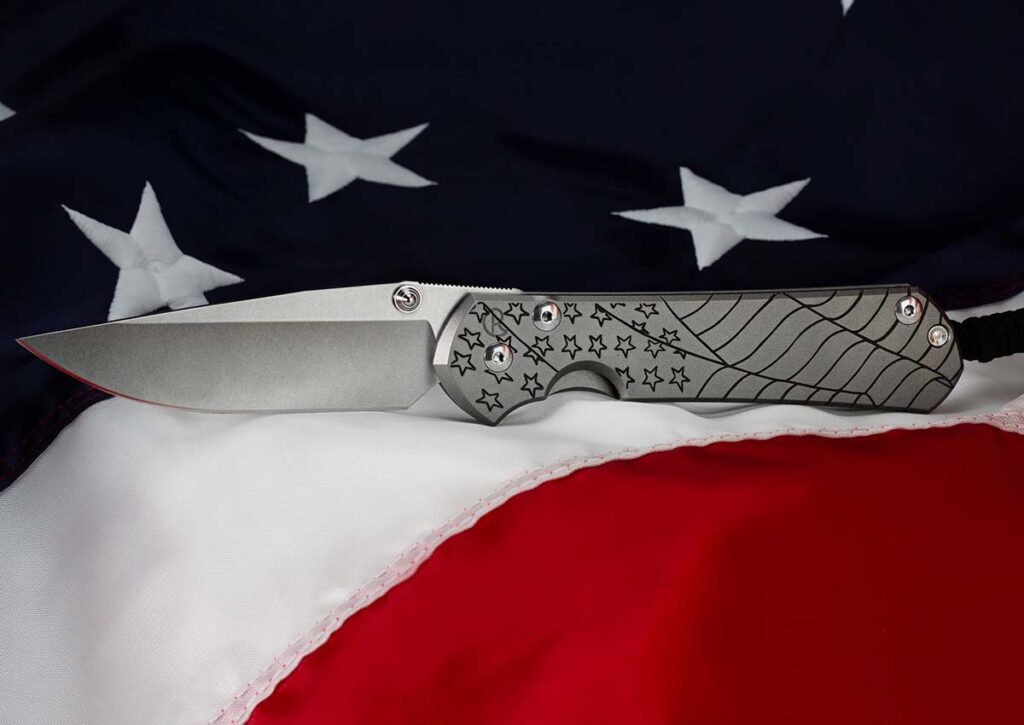
“In regard to stuff abroad, we source everything in the U.S., period,” asserted Ernest Emerson of Emerson Knives, Inc., located in the Los Angeles, California, area. “We don’t get steel screws or handle materials except from U.S. suppliers at this point, so availability of materials doesn’t affect us. Also, 99 percent of our product is sold domestically, so we don’t have any dealers set up in Europe, although there is a tremendous fan base for us there.”
The benefits of an established brand and loyal following are hallmarks of the success story at Chris Reeve Knives, located in Boise, Idaho, as well.
“We are in the very fortunate position of having established a legacy brand many years ago and are supported by an incredibly loyal customer base,” explained Anne and Tim Reeve. “The market has changed considerably in recent years, but we have remained stable. To keep competitive, we focus on consistency in our brand and our models and uncompromising quality in materials, designs, workmanship and customer service.”
Dangers Abroad
Domestic competition is welcomed among American knife companies. Consumers are invited to question, evaluate and commit with their dollar at home. However, in the wider world there are obvious signs that the playing field is far from level when it comes to price points.
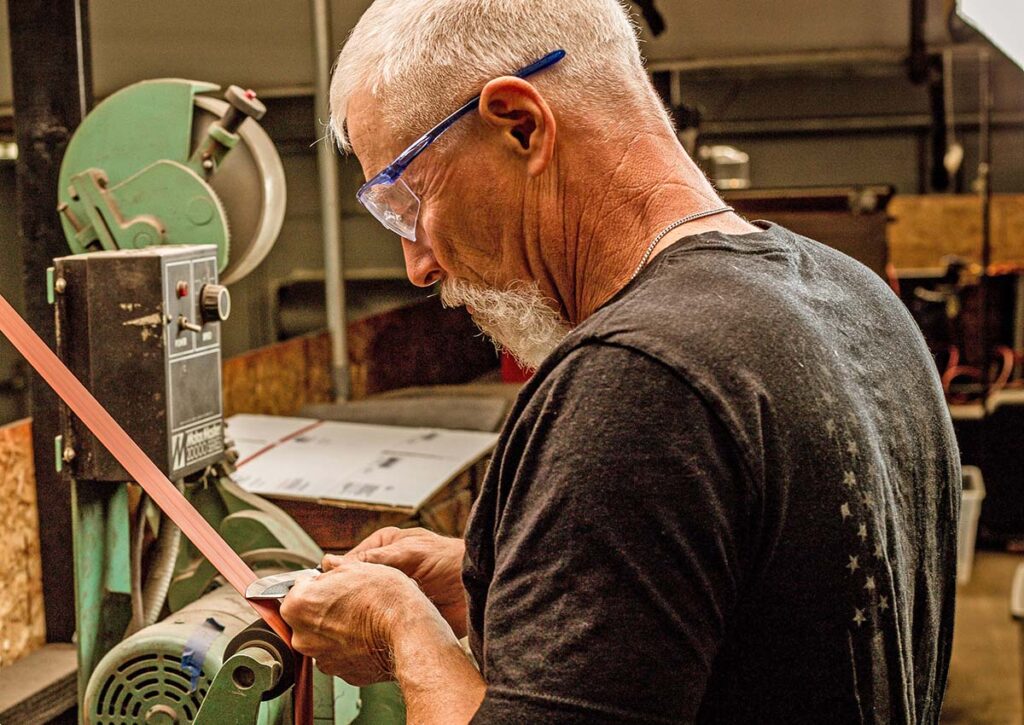
Further, the encroachment of foreign knife companies into the American market with the economic power and financial backing of their government’s bankroll is troubling—and among these foreign companies no others stand out more prominently than those headquartered in the People’s Republic of China.
“A very real danger to our industry is the Chinese knife companies,” Emerson declared. “They are ruthless, and their endeavors inside our industry are the same exact game plan as the Chinese government is using across all U.S. industries—break them down, undercut them, put them out of business. They are funded by the Chinese Communist Party, and don’t get me wrong, the product is good. But what happens is they come in at prices just under [Emerson], Buck or Spyderco. So, in the consumer’s mind they may reason that the Civivi or WE knife is $50 cheaper and buy that knife. It’s a shame because we have seen companies that have been in business for years go out of business. If you take an 18-to-25 percent hit to the bottom line, it affects you like crazy. That’s millions in revenue.”
Iovito adds to that perspective.
“There are two main disadvantages,” he said. “Increased competition from Chinese-made products and rising concerns about counterfeiting. The lower labor costs and government funding available to manufacturers in China create a significant competitive gap. Additionally, counterfeits have become harder to distinguish from genuine American-made knives, especially as platforms like Alibaba make it easier for counterfeiters to distribute their products. The situation is compounded by foreign-government-backed knife companies with substantial marketing budgets, which make it difficult for smaller U.S. companies to compete at sub-$150 price points. We’re also seeing foreign interests penetrate U.S. industry organizations through donations and sponsorships aimed at market expansion.”
At Chris Reeve Knives, the owners acknowledge the market conditions that drive profitability.
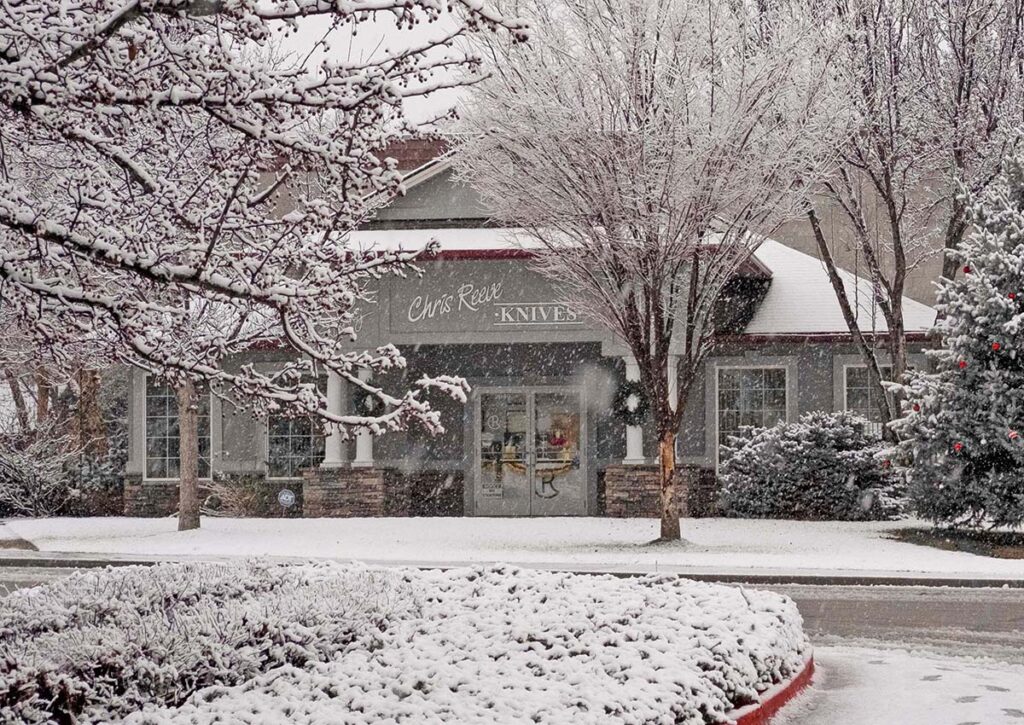
“It is becoming more and more expensive to produce knives or anything else in the USA, but we are grateful that we established ourselves as much USA-made as is possible many years ago,” Anne commented. “Labor costs have skyrocketed and all materials have increased. We monitor costs closely and negotiate as much as feasible with our suppliers. We focus on innovative manufacturing processes, employee training and scrap reduction without compromising quality.”
Hence, keeping costs contained in light of wage pressure, materials availability driven by demand, and other factors that are basic for any business—including utility costs, equipment maintenance, upkeep and upgrades, and the retention of skilled and even unskilled workers—is always a priority. The companies who manage such challenges best are those that survive and prosper.
Trade Protection
However, where is the pressure point or the point of relief when it comes to foreign competition? How does the American knife manufacturer remain competitive and keep each of these critical components in fragile balance? Perspectives on trade protection are somewhat varied but they may well have a purpose in the overall economic scheme of things.
“We see an average Total Import Tax of about 22.4 percent on folding knives and 23.6 percent on fixed blades,” Iovito related. “Often it is much higher. There aren’t many solutions to this issue other than competitive tariffs and trade agreements. The VAT and tax outlay by our dealers can almost double the price of our knives in the European Union. Additionally, the dealer doesn’t receive a refund on the VAT until the knives are sold. This effectively disincentivizes the stocking of American knife brands.
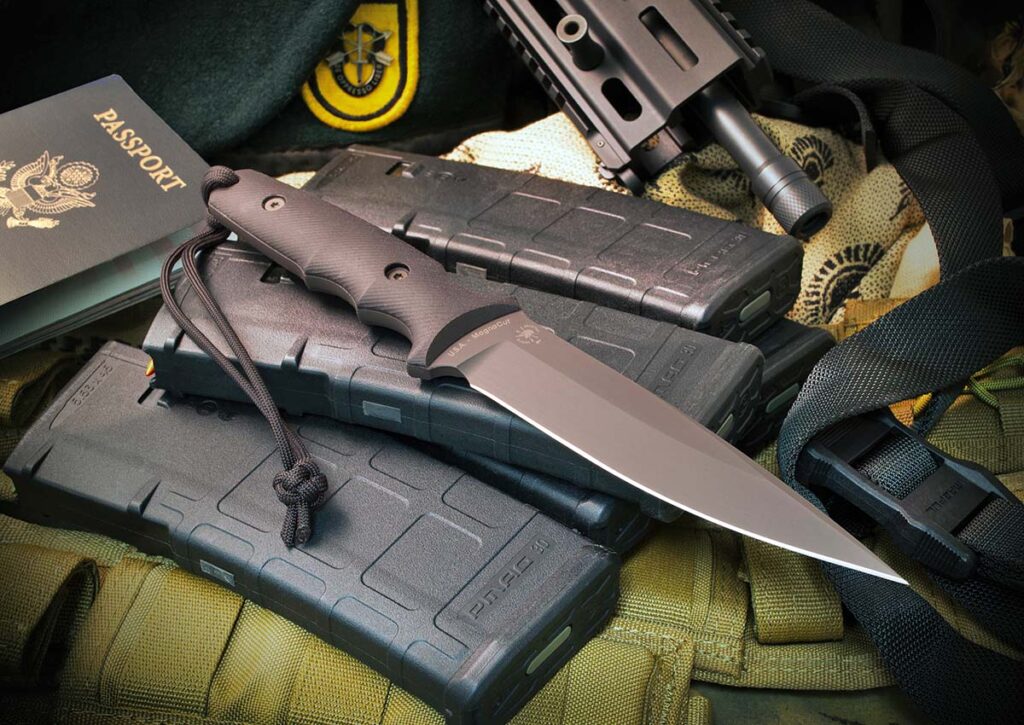
“I believe in maintaining ‘Most Favored Nation Status’ with our allies,” Curtis added, “but tariffs could still be adjusted to ensure fair competition. Ideally, tariffs should be leveled in a way that provides an advantage to U.S. manufacturers, helping to balance the playing field. For those countries that are international trade competitors, I feel their products should be taxed at an equal rate or in a manner that places them at a competitive disadvantage.”
Fair is fair, say Anne and Tim.
“Tariffs hurt the international dealers and, as a result, the end users. The dealers often work on reduced profit margins simply to sell the product at an affordable price. We are fortunate to be an accepted luxury brand and, without sounding arrogant, our international end users generally have higher disposable incomes. There is little that we can offer by way of incentives or discounts to combat tariffs.
“First reaction [to U.S.-imposed tariffs] would say that reciprocity would be fair,” the Reeves concluded. “We should charge as they [other nations] charge us. However, the reality is that high tariffs on incoming knives hurt our industry by making everything more expensive. Tariffs are such a political thing, and a general rise in tariffs is not a good answer to the problem.”
Domestic Taxes & Restrictions
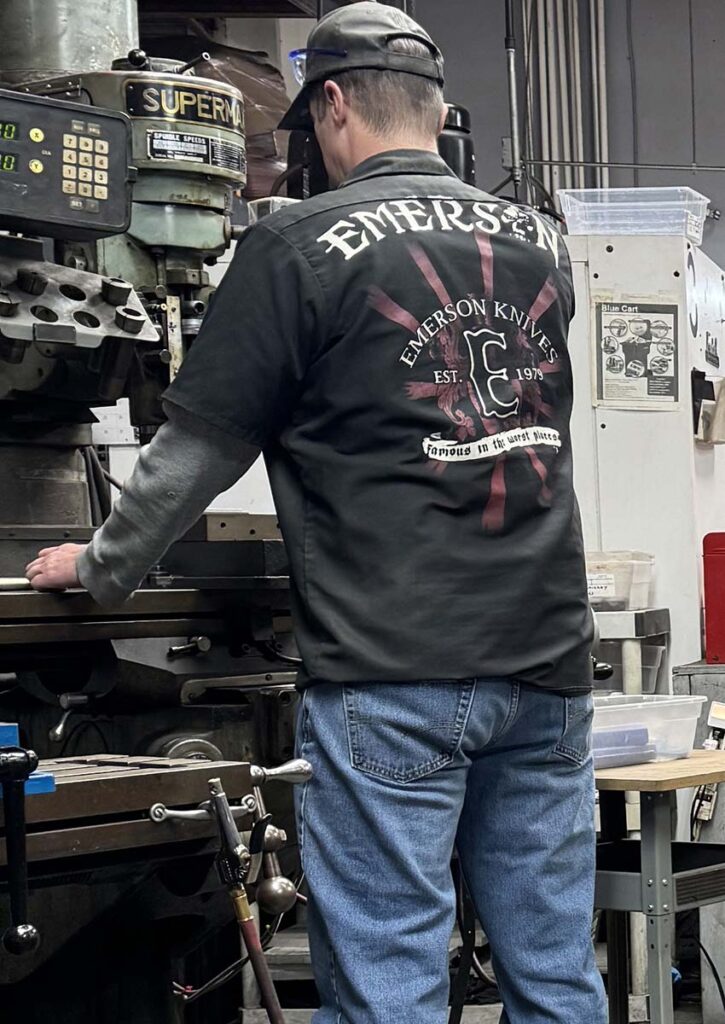
In addition to foreign competition, there are restrictions right here at home that challenge the knife manufacturer on a daily basis. That situation is particularly true for Emerson Knives, Inc. Ernest says the continual pinch of California’s local and state taxes, restrictions and legislation impede his company’s performance. But don’t jump to the conclusion that simply relocating to another state holds the answer. Emerson is committed to his employees, many of whom have been with him for more than 25 years. They have families and deep roots in California and can’t relocate to a more business-friendly state.
Still, Ernest bristles at the simple fact that taxes are levied against every piece of equipment on his facility’s floor. He must follow rigorous guidelines on disposal of byproducts, pay fees for parking, comply with building restrictions, and fork over a fee for a license to operate his laser machines. All the while, he is aware that other companies operate under the radar, ignoring these state-imposed requirements.
“The Los Angeles council passed a law that the minimum wage will be $30 per hour by 2028,” Ernest noted. “They are sneaky in that they apply this only to groups like ‘hospitality workers,’ but the truth is that any worker can look at what they are currently doing and say, ‘I can fold bedsheets for $30 an hour instead of doing this.’ That means that everybody has to pay $30 an hour to retain their workers. Imagine what the cost of a Big Mac will be when fast food workers at McDonald’s are paid $30 an hour.”
In contrast, the Chris Reeve Knives business environment in Idaho is apparently better overall.
“We are fortunate that Idaho is a good place to do business, and there are no particularly difficult restrictions,” Anne remarked. “One of the biggest issues for small businesses is high rates of taxation. I understand that taxes are necessary, but I would rather invest in my employees and equipment than see my tax dollars spent unwisely. The American drive to make high quality goods is still very much alive! We are fortunate to have employees who are proud to work for an ‘all American’ company and strive to make the very best. Most of our market is in the USA and our customers appreciate the fact that we are so doggedly ‘Made in Idaho!’”
Anti-Knife Laws
For years, the issues surrounding restrictive knife laws have influenced American knife manufacturers, from the types of knives they make domestically to their ability to import or export. These days, some softening has been experienced, particularly due to the efforts of groups like Knife Rights and the American Knife & Tool Institute (AKTI), which have challenged some laws in court or successfully lobbied to keep others from reaching the books at the federal or state level.
“Our knives don’t gain too much attention in anti-knife legislation,” Anne said. “The one-hand-opening issue that caused so much concern some years ago has subsided. AKTI and Knife Rights have done yeoman’s work in overturning dated and irrational legislation, and we are happy to support them.”
Interstate commerce remains solid for Emerson as restrictive knife laws appear to be on the wane.
“Knife restrictions state to state don’t really affect us,” he commented. “I’m not aware of any state that we can’t ship to. Thank goodness for AKTI and Knife Rights fighting the good fight for us. I’ve always told everybody that we have to fight for the 2nd Amendment whether you are a gun person or a knife person. No matter what, where guns go, knives are soon to follow.”
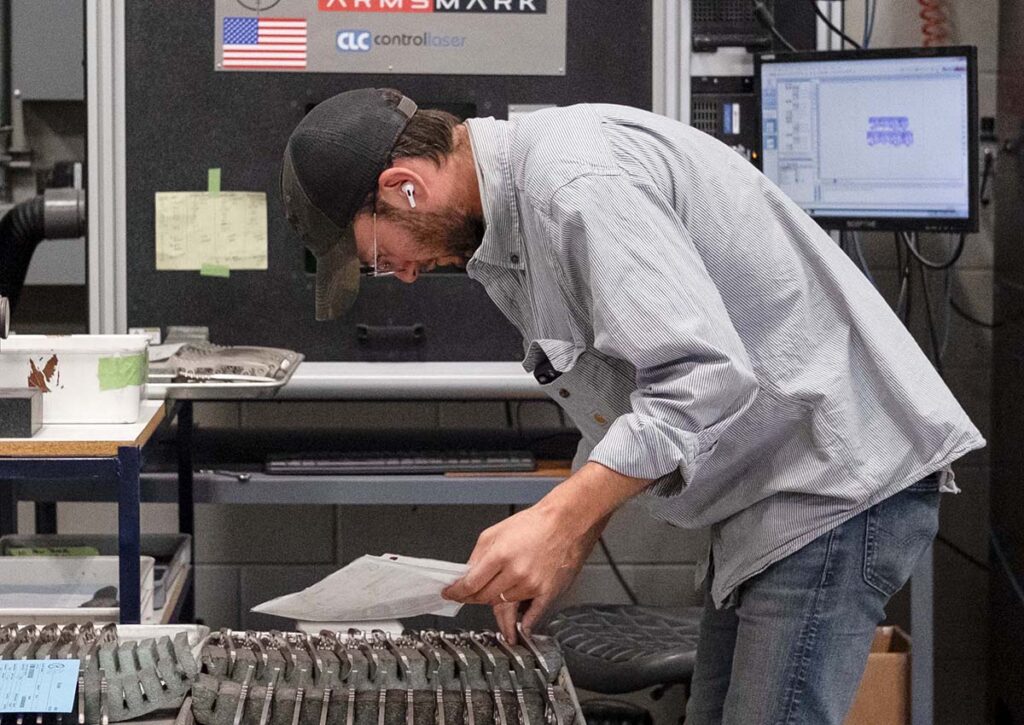
Iovito added a positive point of view.
“In the U.S., legal restrictions on knives are often based on a mistrust of citizens or as a way for a politician to appear tough on crime instead of addressing the root cause of crime in his district. However, I’m seeing positive change as lawmakers and the public recognize that most people carry knives as tools rather than weapons. As knife laws in the U.S. evolve, I’m optimistic about their eventual liberalization. While I won’t comment on laws in other countries, most of these laws tend to be reactive responses to broader societal issues.”
American Resilience
Considering the challenges of modern business and the complications presented, American knife companies have proven remarkably adaptable and resilient.
“The thing that has kept Emerson Knives, Inc., afloat,” Ernest explained, “is being the right size to be super flexible. We are small and every operation is done in-house, and I have worked with companies over the years to make smaller amounts of knives to fill orders. That way we don’t sit on ‘XYZ number’ of knives and wonder what we’re gonna do. Small businesses and shop owners really drive the average Joe in the U.S., and I’m proud to be a part of it.”
Read About Custom Knives:
- Eastern European Custom Knives
- Latin Americab Custom Knife Makers
- What Do Judges Look At In Custom Knife Competitions?
- What Defines The Best Custom Hunting Knives?
 NEXT STEP: Download Your Free KNIFE GUIDE Issue of BLADE Magazine
NEXT STEP: Download Your Free KNIFE GUIDE Issue of BLADE Magazine
BLADE’s annual Knife Guide Issue features the newest knives and sharpeners, plus knife and axe reviews, knife sheaths, kit knives and a Knife Industry Directory.Get your FREE digital PDF instant download of the annual Knife Guide. No, really! We will email it to you right now when you subscribe to the BLADE email newsletter.


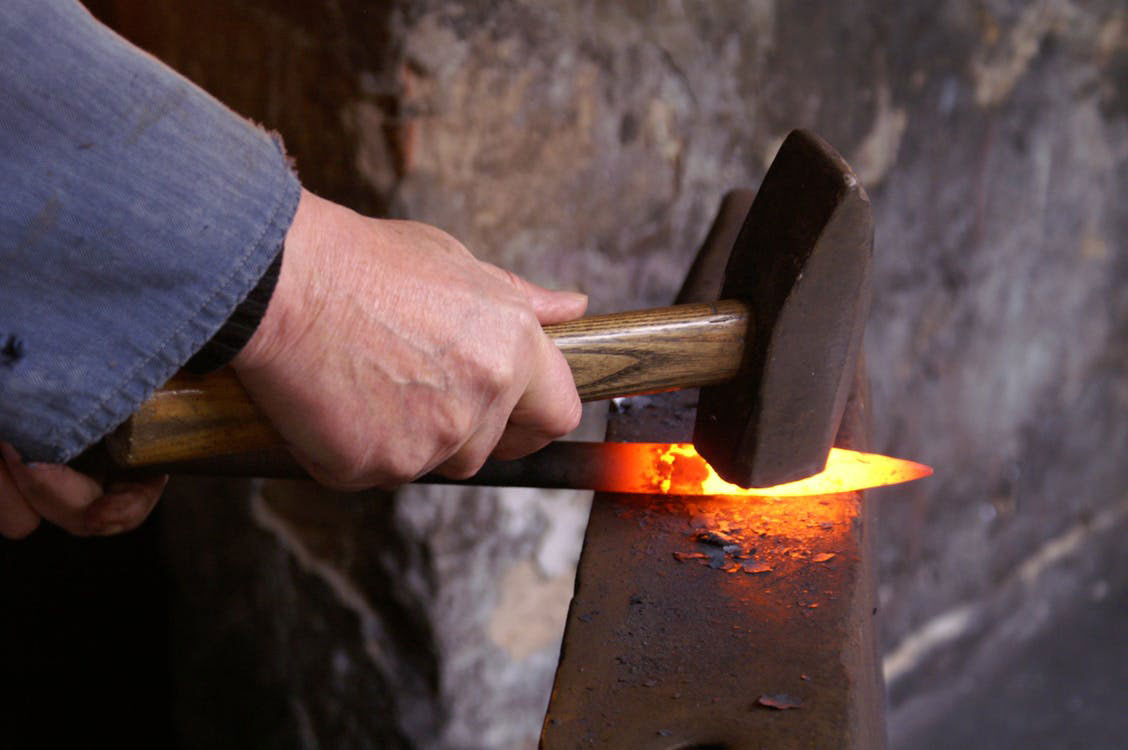
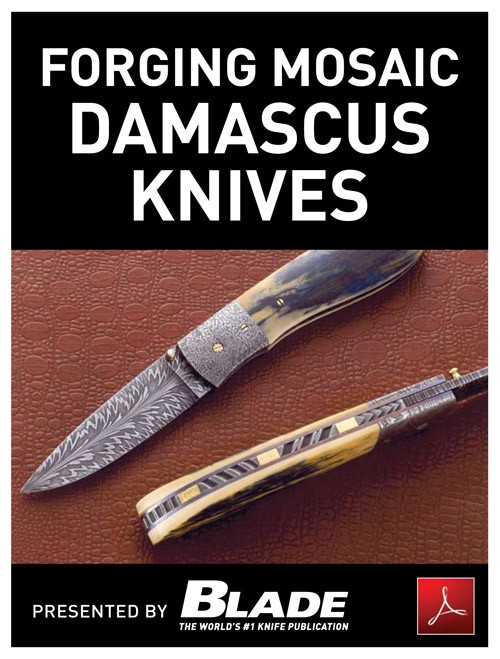
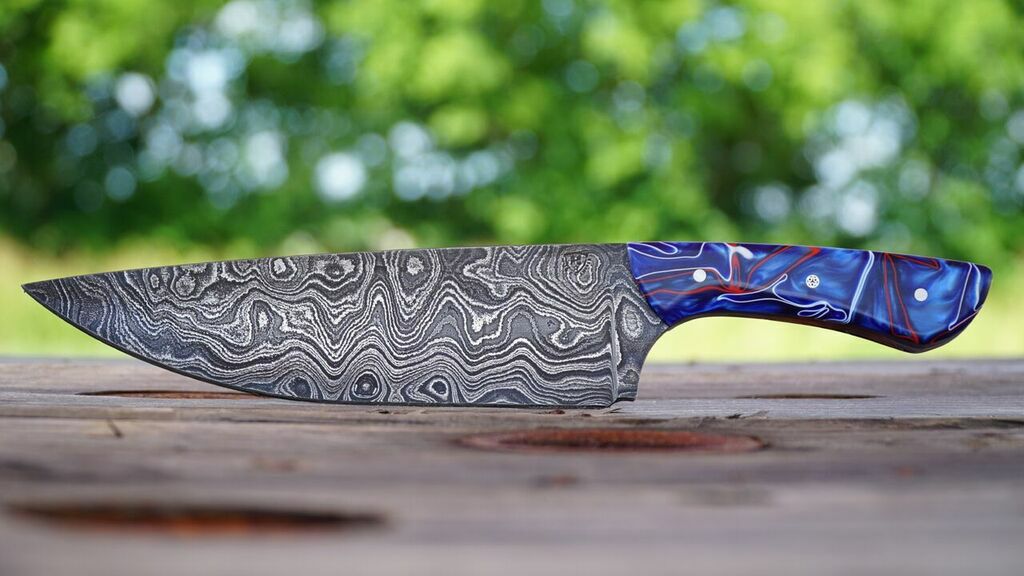


VAT is more or less a sales tax paid by all in Europe. $400 knives will not save USA industry. Anymore than $400 shoes.